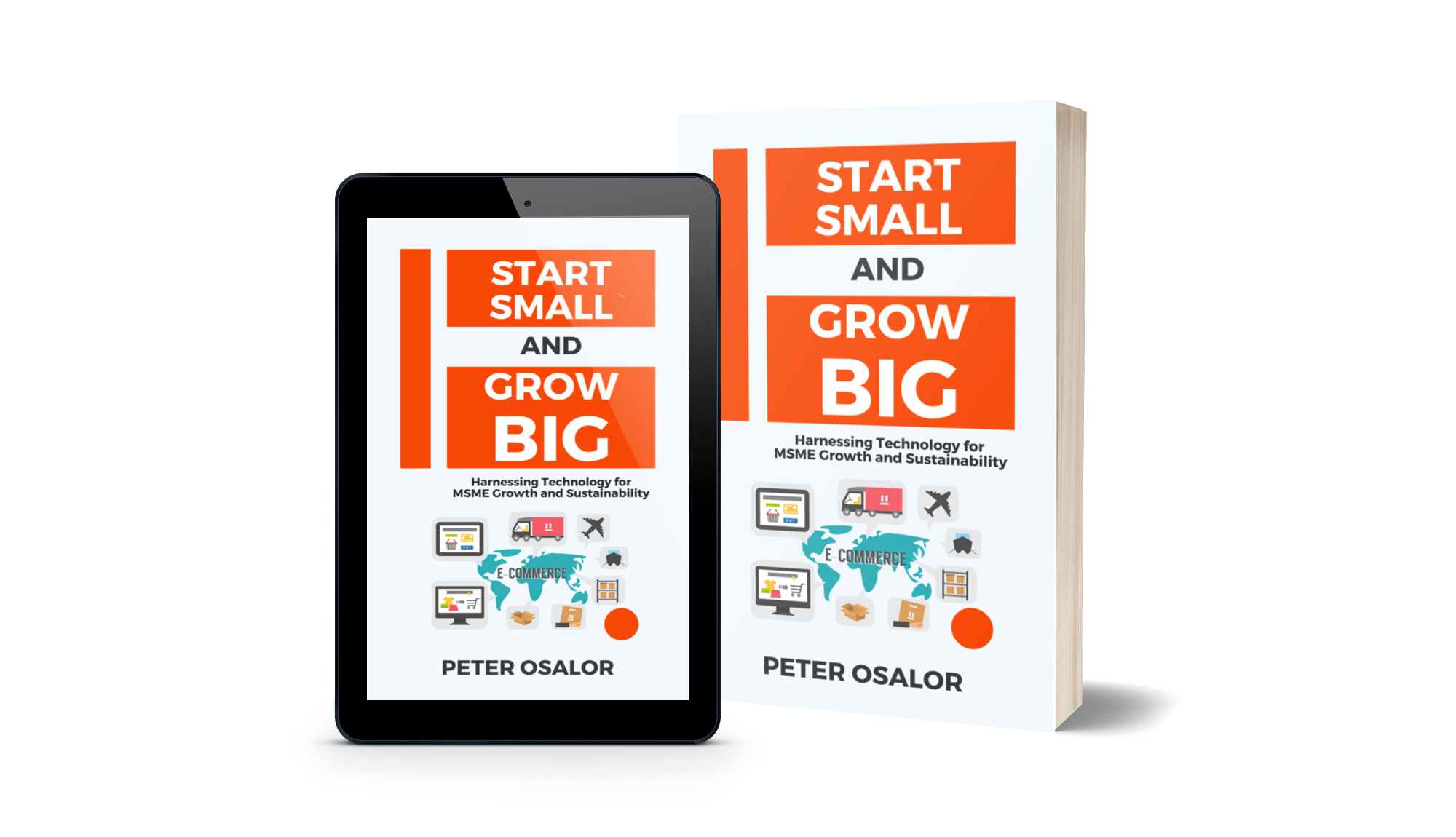Embarking on the entrepreneurial journey is exhilarating. The idea of creating something from scratch, steering your own ship, and achieving financial and personal freedom is immensely appealing. However, the path to entrepreneurial success is laden with challenges, uncertainties, and decisions that can make or break your business. One of the most critical factors that can influence your success is having a clear vision of your goals.
The Importance of Knowing Your True Goals
Clarity and Focus
Knowing what you truly want as an entrepreneur provides clarity and focus. When your goals are well-defined, you can channel your efforts, resources, and time more effectively. This clarity helps in making strategic decisions, setting priorities, and staying motivated. Without a clear vision, it’s easy to get lost in the myriad of tasks and opportunities that come your way, leading to wasted resources and missed opportunities.
Strategic Decision-Making
A clear vision acts as a compass, guiding your decision-making process. When faced with choices, you can evaluate options based on how well they align with your goals. This strategic approach minimizes the risk of making impulsive or short-sighted decisions that could derail your progress. It enables you to make informed choices that propel you toward your desired outcomes.
Motivation and Persistence
The entrepreneurial journey is often a rollercoaster of highs and lows. During challenging times, a well-defined goal serves as a source of motivation and persistence. It reminds you of why you started and what you aim to achieve, helping you push through obstacles and setbacks. This resilience is crucial for long-term success in the unpredictable world of entrepreneurship.
How to Define Your Entrepreneurial Goals
Reflect on Your Passions and Interests
Start by reflecting on what truly excites and motivates you. Your entrepreneurial journey should be aligned with your passions and interests, as this will sustain your enthusiasm and drive. Consider what industries or problems you are passionate about and how you can create value in those areas.
Assess Your Strengths and Weaknesses
Understanding your strengths and weaknesses is essential for setting realistic and achievable goals. Conduct a self-assessment to identify your core competencies, skills, and areas where you may need improvement or support. This self-awareness will help you set goals that leverage your strengths and address your weaknesses.
Define Your Long-Term Vision
Your long-term vision is a broad statement of what you want to achieve in the future. It should be aspirational and inspiring, providing a sense of direction for your entrepreneurial journey. Think about where you see yourself and your business in 5, 10, or 20 years. This vision will serve as the foundation for your more specific goals.
Set SMART Goals
Once you have a long-term vision, break it down into specific, measurable, achievable, relevant, and time-bound (SMART) goals. These goals provide a clear roadmap for achieving your vision. For example, instead of setting a vague goal like “grow my business,” set a SMART goal such as “increase revenue by 20% within the next year by expanding into new markets.”
Prioritize Your Goals
Not all goals are created equal. Prioritize your goals based on their impact on your long-term vision and your current situation. Focus on high-impact goals that will move you closer to your vision and address critical challenges or opportunities. This prioritization ensures that you are investing your time and resources in the most effective way.
Turning Goals into Reality
Create an Action Plan
An action plan outlines the specific steps you need to take to achieve your goals. Break down each goal into smaller, manageable tasks and set deadlines for each task. This approach makes your goals less overwhelming and provides a clear path to follow. For example, if your goal is to launch a new product, your action plan might include market research, product development, testing, and marketing.
Monitor and Evaluate Progress
Regularly monitoring and evaluating your progress is crucial for staying on track. Set up a system for tracking your progress toward each goal, such as weekly or monthly reviews. This allows you to identify any deviations from your plan and make necessary adjustments. It also provides an opportunity to celebrate your achievements and stay motivated.
Stay Flexible and Adaptable
The entrepreneurial landscape is dynamic and ever-changing. Be prepared to adapt your goals and plans as new information and opportunities arise. Flexibility allows you to respond to changes in the market, customer needs, and other external factors. This adaptability is key to staying relevant and competitive in a rapidly evolving environment.
Seek Support and Resources
No entrepreneur can achieve success alone. Seek support and resources from mentors, advisors, peers, and professional networks. These connections can provide valuable insights, advice, and encouragement. Additionally, consider leveraging tools, technologies, and services that can streamline your operations and enhance your productivity.
Case Study: Turning Goals into Reality
To illustrate the process of defining and achieving entrepreneurial goals, let’s consider the example of Sarah, a budding entrepreneur with a passion for sustainable fashion.
Defining Her Vision
Sarah’s long-term vision is to create a leading sustainable fashion brand that not only offers stylish and eco-friendly clothing but also promotes ethical practices throughout the supply chain. Her vision includes becoming a recognized name in the industry, influencing positive change, and generating substantial revenue.
Setting SMART Goals
Based on her vision, Sarah sets the following SMART goals:
- Launch a Capsule Collection: Develop and launch a capsule collection of sustainable clothing within six months, with a focus on eco-friendly materials and ethical production practices.
- Increase Online Sales: Increase online sales by 30% within the next year by enhancing her website, implementing digital marketing strategies, and optimizing the customer experience.
- Expand Market Reach: Expand into three new markets within the next two years by establishing partnerships with local retailers and leveraging social media marketing.
Creating an Action Plan
Sarah’s action plan includes the following steps:
- Market Research: Conduct market research to identify trends, customer preferences, and potential competitors in the sustainable fashion industry.
- Product Development: Collaborate with designers and suppliers to develop the capsule collection, ensuring that all materials and production processes meet her sustainability criteria.
- Website Enhancement: Redesign her website to improve user experience, showcase her brand story, and integrate e-commerce functionalities.
- Digital Marketing: Implement digital marketing strategies, including social media campaigns, email marketing, and influencer partnerships, to drive traffic and sales.
- Partnership Development: Identify and approach potential retail partners in the target markets, presenting her brand and negotiating partnership agreements.
Monitoring and Adapting
Sarah regularly reviews her progress, tracks her sales data, and gathers customer feedback. She makes adjustments to her marketing strategies based on performance metrics and explores new opportunities for collaboration and growth. By staying flexible and open to change, she ensures that her business remains agile and responsive to market dynamics.
Conclusion
Defining and achieving your entrepreneurial goals is a continuous process that requires clarity, focus, and adaptability. By understanding your true goals, setting SMART objectives, and implementing a strategic action plan, you can navigate the challenges of entrepreneurship and turn your vision into reality. Remember, the journey may be demanding, but with a clear roadmap and unwavering determination, success is within reach.
In “You Don’t Need Any Money to Start a Business” by Peter Osalor, you’ll find further insights and practical advice on defining your goals and transforming them into tangible achievements. The book delves into the nuances of entrepreneurial success, offering valuable lessons and strategies for aspiring and seasoned entrepreneurs alike. By applying these principles, you can embark on a fulfilling and prosperous entrepreneurial journey, regardless of your financial starting point.


















